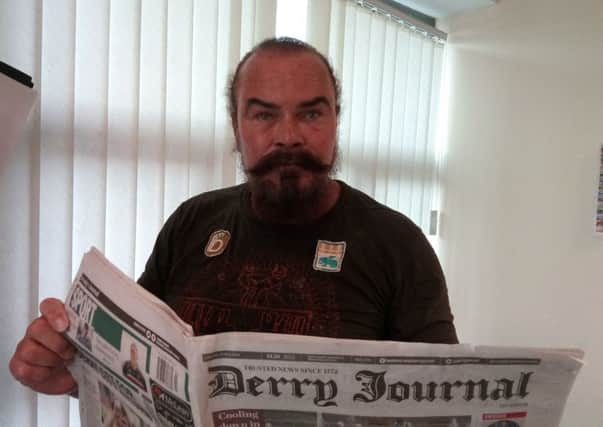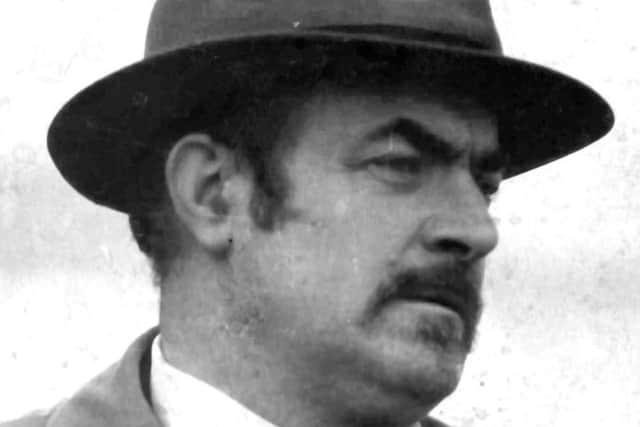50 years on from birth of Civil Rights, we, as a people, deserve better than this'


Fifty years on from the birth of the Civil Rights Movement, Vincent Coyle, whose father Vinny was among those at the helm of the organisation during the late 1960s and 70s, said something has gone badly wrong.
Mr Coyle, himself a rights activist, was reacting to new research which showed the number of deprived areas has grown significantly.
Advertisement
Hide AdAdvertisement
Hide AdThe new paper compiled for the NI Assembly’s Research and Information Service found that last year that the Strand, Diamond, Brandywell, Creggan, Ballymagroarty and most of the Galliagh area, were among the 20 most deprived districts in the North. This is compared to eight years ago, when central Creggan was the only place in Derry to feature in the top 20 neighbourhoods.


Derry, as a whole, remains in the top three most deprived areas, alongside other predominantly nationalist areas of West Belfast and North Belfast, with Strabane also a ‘hot spot’.
Mr Coyle said it was important to reflect on the situation today in light of the Civil Rights Movement’s demands for full employment, housing, infrastructure, investment, and the expansion of Magee.
“We are today in a city where nationalists/republicans rule in council with representation for Stormont, Westminster, Europe and we have to look at this report and ask what has been achieved.
Advertisement
Hide AdAdvertisement
Hide Ad“Where is our leadership?” he asked. “We still have de facto internment; we still have these high levels of deprivation. We have the most beautiful river and the fastest flowing river in Europe outside the Volga and the busiest thing on it is Foyle Search & Rescue.
“I put that down to bad leadership; leadership that calls out for something to be done for Derry but won’t sit down and debate the way forward at Stormont.”
Derry, he said, had shown its collective strength when it took to the streets 50 years ago and “screamed for representation” to ensure people had rights and opportunities.
“No more are we seeing announcements of 300 jobs coming. The last big hope we had was Fort George, and the possibility of 600 /700 civil servant jobs in this city. They stopped them in Coleraine, like the university. That was at a time when we were at maximum leadership capacity. How did that happen?
Advertisement
Hide AdAdvertisement
Hide Ad“We reside in the second city within N. Ireland but I feel that we remain a second class people and that is down to our leadership not giving us the leadership we deserve.
“Why are we not striving ahead, we who led the way during the Civil Rights Movement?” he asked.
This was true, he claimed, even in areas such as the Brandywell, which has seen millions in funding come into the area, but yet remained on the list of the most deprived.
Blaming the Tories repeatedly didn’t wash when people had given MLAs a mandate to take responsibility for decisions affecting them, he said.
Advertisement
Hide AdAdvertisement
Hide AdMr Coyle said that while the areas of Derry identified in the report were home to some of the best people to be found anywhere, there was a lack of opportunity and a sense of hoplessness which was manifesting itself in addiction, self-harm and anti-social activity.
Another major problem, he claimed, was that people were paying huge amounts for often unsuitable private rents because there was not enough social homes.
“Social deprivation for us in 1968 and before that was Springtown Camp. That brought the people onto the streets. A huge achievement for the Civil Rights Association was the NI Housing Executive, but now the NIHE is bring broken down.
“Deprivation forced people onto the street but we had no voice in the Guildhall, at the time, to represent us. Now we have this report which was made for Stormont but there is no-one there attempting to do anything about it.”
Advertisement
Hide AdAdvertisement
Hide AdMr Coyle said he wanted to spark a conversation around why so much of Derry is socially deprived today. “It’s as if we’ve gone back over the years,” he maintained. “We, as a people, deserve better than this. Too much has been paid in blood, sweat and tears and this report, as far as I am concerned, is not the disgrace of the people who live in these areas, but the disgrace of the leadership who have let them down so badly.”